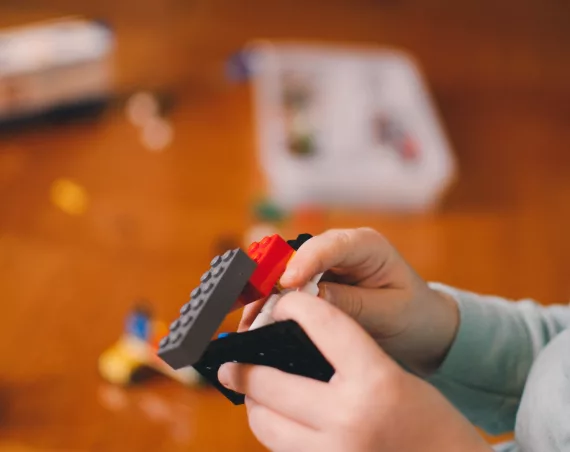
Mars Perseverance Rover
Powered by RedCircle
Hello and welcome to Learn English Vocabulary. My name is Jack and I’m making this podcast for you to learn or revise English vocabulary. You can find a transcript of this podcast on LearnEnglishVocabulary.co.uk. There’s a page for this podcast with the transcript, an activity and a task for you to do in the comments section.
Introduction
Today, I want to talk about something that’s really exciting and happening today. Tonight at about 9 o’clock, NASA’s Perseverance Rover is going to land on the surface of Mars. I thought today would be a good day to talk about some language connected to space and look at specific language from a press release from NASA about this event.
Basic space vocabulary
So where to start? A good place would some simple vocabulary and then I’ll look at some language related to tonight’s event.
The solar system
We call the sun and the planets that revolve around the sun the solar system. Solar is used to describe other things related to the sun. Solar panels are used to convert energy from the sun into electricity, for example.
Orbit
The sun is at the centre of the solar system. Planets travel around the solar system in orbits. The word orbit can be a noun or a verb. The planets in our solar system orbit the sun. This means they travel around the sun. The force that keeps the planets in orbit is called gravity in English. If something is trapped in a circular path as it travels around an object with a strong gravitational pull then it is in orbit.
Satellites
Satellites are objects that are in orbit around a planet. We normally think of man-made satellites that are used for GPS and communication, but there are natural satellites as well. The moon is a satellite. I think that natural satellites are normally called moons. The planet earth has one moon, but other planets have more.
The planets
The names of the planets in English are Mercury, the closest to the sun, then Venus, then Earth, then Mars, then Jupiter, the largest planet in the solar system, then Saturn, which everyone knows about because it has rings, then Uranus, then Neptune and then the dwarf planet Pluto.
Uranus is the source of many crude jokes because it sounds like your anus. You can look this up, but I recommend you go to a dictionary website first and don’t just google it.
Astroids and comets
In the solar system, you also find asteroids, comets and meteoroids. Asteroids and comets are very similar. They are large chunks of rock that orbit the sun. I think that comets are generally made of ice and rock and asteroids are made of metal and rock. And comets travel faster. Meteoroids are much smaller and are usually bits that have broken off a comet or an asteroid.
When a meteoroid comes crashing into earth, if it burns up in the atmosphere, it’s a meteor or a shooting star. If it doesn’t burn up and lands then it’s a meteorite.
NASA Press release
That’s enough background vocabulary. I’m now going to read you some text from NASA’s press release about tonight.
NASA is inviting the public to take part in virtual activities and events as the agency’s Mars 2020 Perseverance rover nears entry, descent, and landing on the Red Planet, with touchdown scheduled for approximately 3:55 p.m. EST Thursday, Feb. 18.
I will share the link to the virtual activities on the Learn English Vocabulary page for this podcast. Perseverance is a good name for a rover. You see a rover is like a little remote-controlled car that can drive around on the surface of Mars. The last rover was called Curiosity. Curiosity spent 8 years investigating the red planet and sharing what it found. To persevere means to continue to do something despite difficulties. The opposite is to give up or quit. Perseverance is a positive characteristic. Curiosity was only expected to last 700 days or nearly 2 years. So that little rover managed to persevere for 4 times its expected mission time.
Landing on Mars
When Perseverance arrives at Mars, it lands in three stages. The first is called entry. This is when the spacecraft carrying the rover enters the thin Martian atmosphere. The planet Mars does have some gasses around the surface, but it’s not like the planet Earth or Venus so entering the atmosphere is not going to slow the spacecraft down enough to land.
The next stage is the descent. Descent is a noun. There is a verb: descend which means to go down. You can descend the stairs or if you have climbed up a mountain, you need to descend to get down again. The opposite is ascend. The noun descent just means the stage of the landing where the spacecraft travels down towards the surface of the planet.
Finally, the rover will land or touchdown. This is a noun and a verb and it means to touch the surface. It’s used in American football where a team scores points by making the ball touch the ground in their opponents’ goal area. I don’t know about American football – I think the area has a proper name.
The landing manouevre
This process is not simple. The spacecraft is going really fast. Listen to this next extract to hear about the landing procedure.
During landing, the rover will plunge through the thin Martian atmosphere at more than 12,000 mph (about 20,000 kph). A parachute and powered descent will slow the rover down to about 2 mph (3 kph). During what is known as the sky crane manoeuvre, the descent stage will lower the rover on three cables to land softly on six wheels at Jezero Crater.
This is going to take seven minutes. The spacecraft is going to slow down from 20,000 kilometres per hour to three kilometres per hour to land.
The rover will plunge
To plunge means to descend very rapidly. Normally, it’s used to describe the way people get into the sea or a swimming pool. If you just jump in, you plunge into the water.
A parachute
A parachute, which is like a big umbrella-shaped cloth attached by long strings, will open to slow the spacecraft down. It catches the air. If you jump out of an aeroplane, you need a parachute to stop you from hitting the ground too fast.
The sky crane
There is a strange rocket-powered machine attached to the rover called a sky crane. This will be released from the spacecraft with the rover and will use little rockets to slow the descent and then will sort of hover and lower the rover on cables or metal ropes. This is quite a complicated series of movements. Another word for a complicated series of movements is a manoeuvre.
Jezero Crater
Hopefully, Perseverance will be dropped gently onto the surface of Mars in a place called Jezero Crater. A crater is a bowl-shaped feature of the landscape which was caused by a large meteorite hitting the surface of the planet. There are lots of craters on the moon. There are craters on the earth, too, but they are harder to see.
The mission
And once Perseverance lands, what’s it going to do? I’ve got one more extract for you.
Perseverance also is carrying a technology experiment – the Ingenuity Mars Helicopter – that will attempt the first powered, controlled flight on another planet.
So Perseverance has loads of technology and will be taking pictures and video and no doubt has all sorts of scanners and machines to analyse the things it finds. But most excitingly, it has a helicopter and will attempt the first, powered controlled flight on another planet.
The helicopter has a name. It’s the Ingenuity Mars Helicopter. Ingenuity is the noun form of the adjective ingenious. We use the word ingenious to describe something that solves a problem in a really clever way. So if you find a solution to a problem that is clever and original, people might say you’re so ingenious. Or perhaps if you invent a device that does something very clever people could say what an ingenious device.
Life on Mars
Perseverance has 4 sets of objectives, but the objective that interests or intrigues most people is classified as astrobiology. Part of the rover’s mission is to look for evidence that Mars was at some point capable of supporting life and for evidence of that life.
Conclusion
So … are you excited about Perseverance rover? The mission costs $2.7 bn and this evening, it could all literally crash and burn. However, if it lands successfully and can start its mission, it may find evidence of life on Mars! What do you think? Do you think it will get lucky and bump into ET?
I’m going to put a link to the NASA page where you can watch the proceedings this evening on the page for this podcast on LearnEnglishVocabulary.co.uk.
I hope you have enjoyed this podcast. I love to hear from you and any comments or suggestions you have so please leave me a comment on the site or a rating or a review on Apple Podcasts. Thank you also to those of you that have bought me a coffee. I really appreciate it.
If there are any topics or songs or scenes from a film that you would like me to talk about or anything else you would like to hear, I would be delighted to make a podcast for you. So please visit LearnEnglishVocabulary.co.uk and say hello.
Thanks for listening.





5 Comments
Amin
Hello. Thank you so much for paying attention to this nowadays subject. I’ve recently started learning English at home and your podcast is very helpful for me. I appreciate that. Please do more podcasts like this about refresh subjects.
brian
i have completed whole podcasts this week and this podcast is last. could you make a podcast about the best movies have you watched. so excited if you make it. cant wait soon!
Andres
Hi, the best fucking podcasts, keep it up I like a lot you website
Izhar kazmi
That’s great sir I am feel satisfied being here learning with you sir.
halil
your tone of vioce so clearly and good to listen. i am preparing ielts wtih your podcast…. go on jack… thank you so much